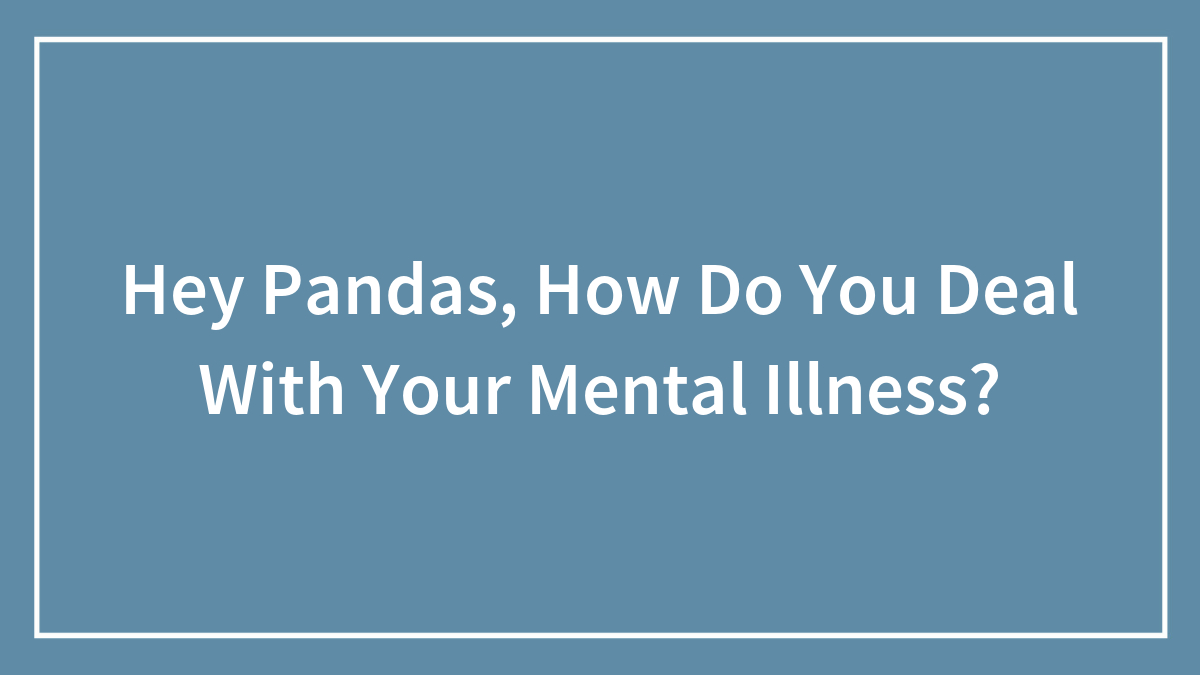I kind of need help here. I’ve been having extremely bad episodes of anxiety and depression. Please and thank you!
This post may include affiliate links.
ADHD, I've automated everything I possibly can. It is the only way for me to hop on board some kind of schedule. Google home has become my best friend. If a human interaction I've had in the past 24 hours is making me anxious (I messed it up, I think I might've messed it up, I think I missed a nuance etc) I go back to the person and flat out ask. I'd rather look like an idiot asking than worry about it endlessly. Annoys a couple coworkers, but, meh. Running a hand under cold water, holding an ice cube, or staring into my eyes in a mirror are all good ways to distract or calm myself down.
Anxiety and likely ADHD (I only discovered the latter is a possibility in the past year and have dealt with anxiety for a long time.). Spending time with God and other loved ones, reading, journaling, long walks for exercise and calming myself, creative outlets such as painting and drawing, and similar habits do wonders!
With my anxiety, I find that waking up early enough every morning to walk with my headphones on makes my brain slow down. I can focus on the nice things around me, the nice music in my head and the physical activity raises the serotonin in me. It's not foolproof but it takes the edge off.
Great attitude! I've learned to appreciate those small victories. Someone told me that engineers expect a failure rate because they often have to solve problems. I now think and say, "I will have a failure rate" and don't beat myself up for the occasional meltdown. I have fewer now because I treat them more like problems to solve. It feels darn good to be able to say, "I tried something different, it worked."
I have depression, anxiety and BPD. All of them severe. Therapy, meds, pets and hobbies help. Working on what makes you unhappy is hard but it helps. Finding the right medication and form of therapy takes a while but don't give up.
Therapy can be hard if you are introverted, sometimes you need a friend or loved one who will listen. Meds weren't for me because they helped, but after a year or so, the side effects were too much. Working on what makes you sad is the key that I only just recently realized, and OP is right, it's hard, especially if part of it is asking for help. But it's better than not trying.
I learned self-talk techniques for anxiety, coupled with patience. Technique #1 "Possibilities": Ask myself "On a scale of 0-[higher number], how anxious do I feel?" Then I come up with several conclusions or explanations for a situation. After that, I ask myself "How do I feel now?" Example of explanations or possibilities: someone looked cross at me. Possibilities: maybe they were thinking hard and happened to look my way; maybe they're having at bad day and looking at everyone the same way; maybe I can ask someone who knows them "So-and-so looked annoyed at me. Is there a problem?".
The best way to deal with anxiety about tasks/obligations or generally anything that you have to do but dread doing....is to do it. Anxiety is actually a normal healthy emotion. Why pay rent if you're not worried about being homeless for example. The problem with anxiety isn't the anxiety itself...it's the behaviors we engage in in attempt to avoid feeling the anxiety (procrastination, substance use, etc). That's when it becomes pathological or a "disorder". The siren call of Avoidance is in reality just fuel to feed all your anxieties, and the only way to overcome them is to eliminate avoidance behaviors. I find it works even with generalized worry about "bad things" that could happen. When I'm stuck in a downward spiral of "what if", I sit down and consciously detail the worst actual possible outcome. Put it in words. Then tell myself that's exactly what will happen, and make a concrete plan of how I will respond to deal with it. 99% of the time worst case never happens...but by facing my worry head on instead of seeking ways to avoid it, the anxiety goes away even when things are going wrong.
I learned self-talk techniques for anxiety, coupled with patience. Technique "Distraction": I worry for a short moment, then ask myself, "On a scale of 0-[higher number], how anxious do I feel?" Then I go do something that distracts me. Maybe 30 minutes or more later, I ask myself, "On a scale of 0-[higher number], how anxious do I feel?" Chances are, the number will be a bit lower. Then I go distract myself again. Then check back in to see how my anxiety is doing.

 Dark Mode
Dark Mode 

 No fees, cancel anytime
No fees, cancel anytime 


















































